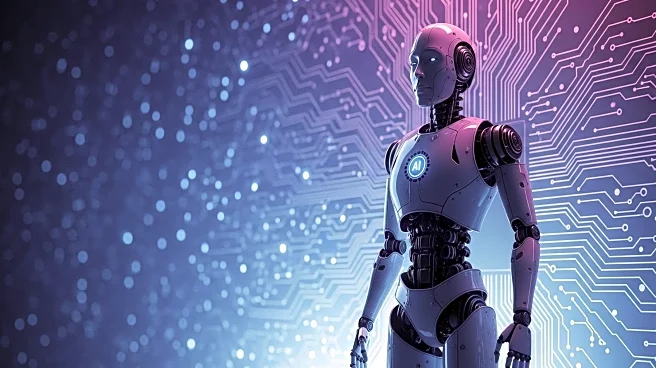What's Happening?
As robots become more intelligent and autonomous, ethical concerns about bias, accountability, and societal impact are increasingly relevant. AI-driven robots are now involved in various sectors, including healthcare, logistics, and education, raising questions about their decision-making processes. Bias in AI systems can lead to discrimination, while accountability for robot actions remains a complex issue. The societal impact of robots includes potential job displacement and changes in social interactions, prompting discussions on ethical design and regulation.
Why It's Important?
The integration of AI in robots has significant implications for industries and society. Addressing bias and accountability is crucial to ensure fair and equitable use of technology. The societal impact of robots, particularly in terms of employment and social relationships, requires careful consideration to prevent negative consequences. Ethical guidelines and regulations are essential to balance innovation with public trust and safety.
What's Next?
Governments and industry bodies are working to establish ethical frameworks and liability laws for AI systems. The European Union's AI Act and UNESCO's global recommendations on AI ethics are examples of efforts to regulate the technology. Robotics companies are also adopting voluntary principles to ensure responsible deployment. Ongoing collaboration between stakeholders is necessary to develop effective solutions.
Beyond the Headlines
The ethical challenges of AI in robots highlight broader issues of technological governance and the need for international cooperation. As AI continues to evolve, societies must navigate the balance between technological advancement and ethical responsibility.












